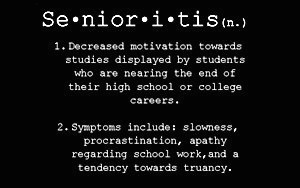A few days ago I listened to a How to Pay for College HQ podcast (you can listen to it yourself by following this link: http://www.howtopayforcollegehq.com/8/) hosted by Celest Horton with guest Felicia Hatcher.
 Can you imagine being told by your High School Guidance Counselor that you will never make it to college and to just give up and look into vocational schools? That is what happened to Felecia Hatcher, but she didn’t let it stop her.
Can you imagine being told by your High School Guidance Counselor that you will never make it to college and to just give up and look into vocational schools? That is what happened to Felecia Hatcher, but she didn’t let it stop her.
Felecia Hatcher was recently named one of the Top 10 Superstar Entrepreneurs under 30 by Allbusiness.com and honored at the White House for the Empact 100′s Top 100 Entrepreneurs under 30. In her book, The C Students Guide to Scholarships, she talks about how she found scholarships to pay for her entire college education.
Taking excerpts from the transcript about scholarships for C students, read below:
Slow Start in High School?
Are you student that was not focused for the first few years of school and your GPA is under a 3.0? Don’t fret as there are ways to differentiate yourself so that you can find college scholarships.
- There are college scholarships that don’t require your GPA in order to apply or the GPA requirement is low.
- Focus on being a well rounded student who is active in community service, clubs or activities that you are passionate about.
- What are your strengths (writing, math, speaking, etc.)? Use those strengths to your advantage to separate yourself from the potential pool of applicants.
- Key aspect is to concentrate on LOCAL SCHOLARSHIPS because the pool of applicants is much smaller.
Go Local, Go Local, Go Local
Where to look?
- High School Counselor or College Financial Aid Officer,
- Student Clubs and Organizations,
- Businesses (Local, Your Employer or Your Parents Employer),
- Military Service (You, Your Parents’ or Grandparents’ Service),
- Community Organizations (American Legion, Association of Junior Leagues, Elks Lodge, Lions Club, Kiwanis International, Knights of Colmbus, Optimist International Club, Rotary Club, YMCA, etc.) You might be able to think of more than I did off the top of my head so keep brain storming.
- Church
- Unions
- Local Professional Sports Teams
- Local Newspaper
If you haven’t subscribed to Celest’s podcasts, you are missing out on some great college financing information. Her guests are knowledgeable and eagerly share their expertise to help parents pay for college and stay out of debt.









